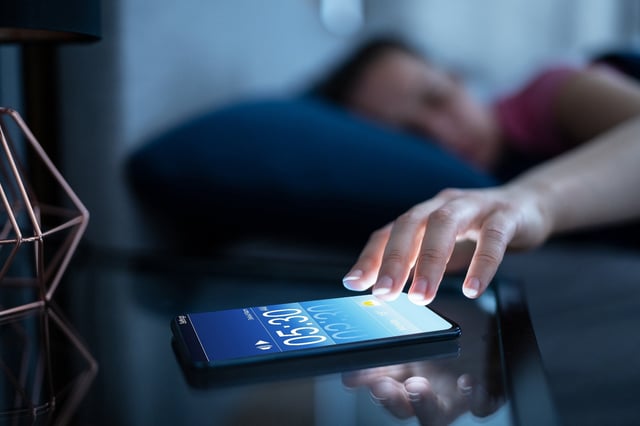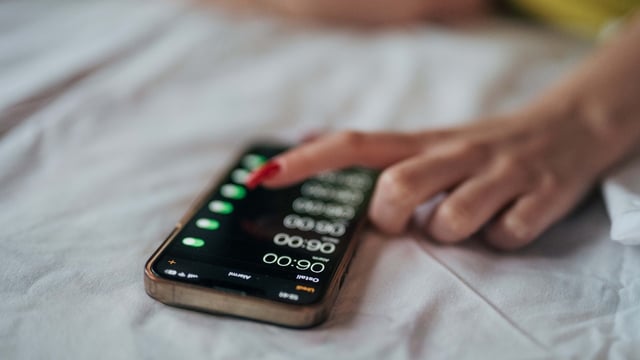Overview
- A six-month study analyzed over 3 million nights of sleep data from 21,000+ global Sleep Cycle app users.
- Researchers found 56% of sleep sessions ended with snooze use, delaying wake-up by an average of 11 minutes.
- Heavy snooze users, relying on snooze alarms over 80% of mornings, averaged 20 minutes between alarms.
- Snoozing disrupts REM sleep, offering only fragmented light sleep, which impairs memory, emotional processing, and alertness.
- Sleep experts recommend setting a single alarm for the latest possible time and maintaining consistent sleep schedules.


